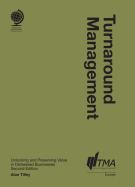Arbitration under the spotlight
18 September 2014

Author bio coming soon
Ed Poulton, partner at Baker & McKenzie and newly appointed blog editor, puts arbitration under the spotlight to launch Globe Law and Business' new blog in the area.
Arbitration, as a consensual form of dispute resolution, has been around for centuries, if not millennia (what was Solomon in the dispute between the two mothers over the baby if not an arbitrator?).
It has also taken many forms: one of my favourite stories, beautifully recounted by Lord Bingham in 1989, relates to turkey arbitration. This was apparently commonly adopted by farmers in County Down to resolve their disputes in the 19th century. A turkey hen would be placed on a long table by an impartial chairman selected by the parties to the dispute, with a line of grain down the middle of the table; the turkey would peck its way up the table until the end of the line of grain, when it would be invited to choose between a grain on its right and one on its left; the winner would be the farmer whose grain the turkey selected. This was a quick and impartial way of resolving disputes, and has much to commend it (in particular, as Lord Bingham put it, the parties' ability "to select an expert tribunal").
By contrast, modern arbitration is a complex, and often very sophisticated, form of resolving international disputes. Its exponential growth has been assisted by the wide adoption of the New York Convention, which makes it the ‘only game in town’ for many international transactions (see the following map highlighting the countries which are signatories to the New York Convention, as opposed to the countries which have arrangements with the United Kingdom for the reciprocal enforcement of court judgments).
However, arbitration is currently subject to attack from all sides. It faces a number of criticisms relating to the time and costs involved in the arbitral process. These are being addressed in a number of different ways, and I hope that this blog can be a useful forum to discuss these. In particular, recent years have witnessed the modernisation of many major institutional rules: the International Chamber of Commerce (January 1 2012), Hong Kong International Arbitration Centre (November 1 2013), Singapore International Arbitration Centre (April 1 2013), the Arbitration Institute of the Stockholm Chamber of Commerce (January 1 2010) and the London Court of International Arbitration (coming into force on October 1 2014). The common denominator is the increased length. In response to some of the criticisms, the rules now (also) propose to regulate expedited proceedings, the appointment of an emergency arbitrator or the tribunal more generally, the joinder of third parties to the proceedings and the consolidation of parallel proceedings. Yet with the increase of regulation comes the growing need for discretion and – its corollary – consistency. As a result, the institutions have taken it upon themselves to exercise such discretion in order, it is stated, to control consistency.
However, more fundamentally, the suitability of arbitration as a process to resolve certain types of dispute is increasingly questioned.
In France, the Bernard Tapie settlement has led to the intricacies (and the weaknesses exposed by that case) of the arbitral process being dissected in the press and discussed around the dining tables of many households. In the United Kingdom, a number of large awards made against the government have attracted significant media interest. In many jurisdictions, the question asked iswhether matters of public interest, or those involving public funds, should be subject to arbitration at all. Nowhere has this been felt more strongly than in the recent consultation and exchanges relating to the use of arbitration as the dispute resolution mechanism of choice in the context of the Transatlantic Trade and Investment Partnership being negotiated between the European Union and the United States.
It is in this context that I am delighted to launch this arbitration blog, where we hope to explore some of these trends, developments and topics, and to receive many contributions/comments from others in the field.












Any comments - send us an email